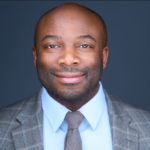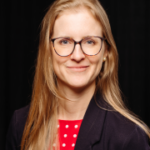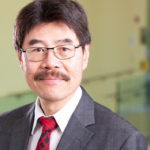If you are interested in joining one of the COA’s Committees as a volunteer member, please contact
Chelsea Patriquin: chelsea@canorth.org or 514 874-9003 x 5.
Governance
The COA’s various Committees are an integral part of the Association’s governance structure. They lead projects, policies, programs, and initiatives that support the COA’s Mission and Vision.
Each Committee is made up of a Chair and Members selected by the COA’s Nominating Committee. Together, their interests and expertise contribute to both the COA’s and the Committee’s goals and mandates.
All Committee positions are on a volunteer basis and serve a mandate of approximately three years, with the possibility of renewal. The Board of Directors or Executive Committee positions may involve longer mandates.
COA Committees meet either in person or via teleconference at various times throughout the year. Committees are grouped under Councils named after the four strategic priorities of the COA: Education, Engagement, Advocacy and Quality. Each Council Chair serves as a member on the Board of Directors.


Call for Nominations 2025 – Applications Closed

We thank all our members who submitted their interest to serve in new Committees and positions in office.
The next Call for Nominations will be in fall 2025.
Eligibility

Eligibility:
• Be a member of the COA in good standing
• Have a good understanding of the COA’s strategic direction
• Proven leadership skills and professionalism
How to Apply

Candidates may self-nominate or nominate a colleague with their consent.
How to Apply for 2nd President Elect:
Prepare to answer the following questions in the application prior to applying:
- Outline previous experience with the COA
- State the nominee’s vision for the COA during the presidential mandate
- State what areas merit improvement in the COA and why
- Write 250 words on ONE of the two topics: Improving sustainable funding opportunities or Advancing advocacy initiatives for COA
- Forward an updated and abbreviated CV to chelsea@canorth.org
- Submit complete application by April 4, 2025
How to Apply for Committee Chair positions:
Prepare to answer the following questions in the application prior to applying:
- Outline the nominee’s previous experience with the COA
- State the nominee’s vision for the COA during Chair mandate
- Forward an updated and abbreviated CV to chelsea@canorth.org
- Submit complete application by April 4, 2025
How to Apply for Committee Member positions:
Prepare to answer the following question in the application:
- Why is the nominee the right fit for this role?
- A CV is not necessary for Committee Member positions.
- Submit complete application by April 4, 2025
Nomination Process

- An open call for nominations is issued annually.
- Voting COA members* can nominate colleagues or themselves by completing the nomination form.
- *Active or Active International membership categories are considered voting members.
- A single nomination for an eligible candidate is all that is required to be considered for office. Multiple nominations or letters of support sent directly to the COA or Nominating Committee will not improve or influence a nominee’s candidacy.
- Completed nomination forms are submitted directly to the COA head office. After the submission deadline, the list of candidates is sent to the Nominating Committee for review and selection.
Bias Considerations

Members in COA leadership positions (Board of Directors, Executive Committee and Committee Chairs) are strongly recommended to complete the following implicit bias and cultural safety training modules during their term.
All COA members are encouraged to complete these same modules at their own discretion.
- Harvard Implicit Association Test – Countries, Skin-Tone, Gender, Weight, Sexuality, Race, Age (Free)
- CIHR Unconscious Bias in Peer Review and Research – Applicable for Practice (Free)
- Indigenous Cultural Safety Training – Healthcare Module (Payable by COA for Board & Committee members upon request)
Selection Process

- Candidates are contacted by the COA to confirm their interest in being considered for the role, and to submit a copy of their CV when applicable.
- Completed nomination forms and corresponding CVs are sent to the Nominating Committee for review.
- A short list is compiled by the Nominating Committee. Short-listed candidates may be contacted for additional information or questions.
- The Nominating Committee selects final candidates from the short list.
- To become final, the Nominating Committee’s recommendation will be first voted on by the Board of Directors, followed by a vote from the general membership at the Your COA business meeting held at the COA Annual Meeting in June.
- Short-listed candidates for 2nd President Elect are automatically considered in the following year’s iteration (unless withdrawn).
Candidate General Criteria

- The COA is committed to diversity, equity and inclusion. We are seeking candidates who reflect the broadest range of COA membership, including but not limited to diversity of leadership experience, geography, gender, age, race, cultural heritage, seniority, practice setting and subspecialty interest.
- We are especially interested in candidates with expertise in any of the following areas:
- Leadership development/mentorship
- Principles of equity, diversity and inclusion
- Continuing professional development
- Advocacy
Governance

COA Leadership Opportunities
COA Board of Directors

Sukhdeep Dulai
President
(2025-2026)

Robert Litchfield
President Elect
(2026-2027)

Paul E. Beaulé
2nd President Elect (2027-2028)

Olufemi Ayeni
Past President

John Grant
Secretary

Ted Tufescu
Treasurer

Bheeshma Ravi
President, COF

Pascale Thibaudeau
Member at Large

Cynthia Vezina

Chelsea Patriquin
Strategic Initiatives

Duncan Smith
Atlantic Representative

Véronique Godbout
Québec Representative

Dave Nelson
British Columbia Representative

Allan Woo
Prairies Representative

Henry Broekhuyse
Council Chair, Education

Jean-François Joncas
Council Chair, Engagement

Kishore Mulpuri
Council Chair, Advocacy

Timothy Daniels
Council Chair, Quality
Ontario Representative

Marcia Clark
Chair, Finance & Audit Committee

Prism Schneider
President, Research Society

David Yen
Chair, Ethics

Robert Morris Gill
Chair, Canadian Orthopaedic Residents Association
Board of Directors

The Board of Directors is chaired by the COA President and is made up of the members of the Executive Committee, regional representatives, and Council Chairs. The Board oversees the general direction of the organization, represents the interests of the membership, and upholds the Association’s reputation on a local, national and international platform. The Board is responsible for setting long-term goals and objectives that govern the future direction of the Association.
Executive Committee

The Executive Committee addresses issues related to planning, programs, staffing, and the implementation of the Board’s strategic direction. It is also responsible for overseeing the Association’s order and structure during the periods in between Board meetings. The Executive reviews financial statements on a monthly basis and receives staff reports on all COA operations. This ensures that the COA leadership remains current on the relevant issues in a timely manner.
The Executive Committee is chaired by the COA President, and is made up of the President Elect, 2nd President Elect, Past President, Treasurer, Secretary, as well as the Chair of the Canadian Orthopaedic Foundation. The CEO and Manager of Strategic Initiatives also support the Executive Committee.
The Executive meets a minimum of ten times annually, primarily by teleconference, with at least two in person meetings.
Education Council

The Education Council is composed of the Continuing Education, Orthopaedic Chairs of Canada, and COA Global Surgery (COAGS) Committees and their Sub-Committees. All Committees have national representation and strive to be equitable in their makeup, while adhering to COA by-laws and upholding individual and specific mandates. The Council is Chaired by a member of the COA Board of Directors.
Engagement Council

The Engagement Council is composed of the Membership Committee, the Exchange Fellowships Committee and the Emerging Leaders Committee. Committees have national representation and strive to be equitable in their makeup, while adhering to COA by-laws and upholding individual and specific mandates. The Council is Chaired by a member of the COA Board of Directors.
Quality Council

The Quality Council is composed of the Standards Committee and two sub-Committees: Evidence-based Research and Knowledge Translation. Committees have national representation and strive to be equitable in their makeup, while adhering to COA by-laws and upholding individual and specific mandates. The Council is Chaired by a member of the COA Board of Directors.
Advocacy Council

The Advocacy Council is composed of the Climate Action Committee, Wellness Committee, Communications Committee and Provincial Associations Committee. Committees have national representation and strive to be equitable in their makeup, while adhering to COA by-laws and upholding individual and specific mandates. The Council is Chaired by a member of the COA Board of Directors.
Standing Committees

The Standing Committees of the COA are the Finance and Audit Committee, Nominating Committee, Ethics Committee, Subspecialty Council and Presidents’ Council. Committees have national representation and strive to be equitable in their makeup, while adhering to COA by-laws and upholding individual and specific mandates. Each Standing Committee is Chaired by a member of the Board of Directors.
Who are the COA Committees and What Do They Do?
Learn more about what the COA’s committees do, and how to get involved.
A brief description of each Committee is outlined below each Council. If you would like further information or terms of reference for any of the Committees, please contact chelsea@canorth.org.
COA Past Presidents 1945-2025

| 2025 | Olufemi Ayeni | |||
| 2024 | Pierre Guy | 1984 | John W. Hazlett | |
| 2023 | Laurie Hiemstra | 1983 | Hans K. Uhthoff | |
| 2022 | Kishore Mulpuri | 1982 | Edward H. Simmons | |
| 2021 | Mohit Bhandari | 1981 | Robert B. Salter | |
| 2020 | Mark Glazebrook | 1980 | Glen E. Edwards | |
| 2019 | John Antoniou | 1979 | Carroll A. Laurin | |
| 2018 | Kevin Orrell | 1978 | Richard L. Cruess | |
| 2017 | Peter B. MacDonald | 1977 | Ian Macnab | |
| 2016 | Robin R. Richards | 1976 | W. Robert Harris | |
| 2015 | Bas Masri | 1975 | Jacques Robichon | |
| 2014 | Edward J. Harvey | 1974 | David G. Landells | |
| 2013 | Geoffrey Johnston | 1973 | Robert N. Lofthouse | |
| 2012 | Emil H. Schemitsch | 1972 | Jean-Marc Lessard | |
| 2011 | Ross K. Leighton | 1971 | Olav Rostrup | |
| 2010 | Cy Frank | 1970 | Frederick P. Dewar | |
| 2009 | Peter J. O’Brien | 1969 | J.C. Kennedy | |
| 2008 | Marc J. Moreau | 1968 | F. Robert Tucker | |
| 2007 | Brendan D. Lewis | 1967 | Roger Gariépy | |
| 2006 | Robert B. Bourne | 1966 | R. Gordon Townsend | |
| 2005 | Alain Jodoin | 1965 | George F. Pennal | |
| 2004 | Robert M. Hollinshead | 1964 | Frank P. Patterson | |
| 2003 | William R. J. Rennie | 1963 | Ian W. Davidson | |
| 2002 | Clive P. Duncan | 1962 | Ulric Frenette | |
| 2001 | Cecil H. Rorabeck | 1961 | E. Wilson Ewart | |
| 2000 | D. William C. Johnston | 1960 | William B. MacKinnon | |
| 1999 | David P. Petrie | 1959 | J. Gordon Petrie | |
| 1998 | James P. Waddell | 1958 | George W. Armstrong | |
| 1997 | Robert F. Martin | 1957 | Louis-Phillipe Roy | |
| 1996 | André Beaupré | 1956 | Harold H. Boucher | |
| 1995 | Michael A. Simurda | 1955 | John L. McDonald | |
| 1994 | R. Merv Letts | 1954 | John R. Naden | |
| 1993 | Morris Duhaime | 1953 | J. Calixte Favreau | |
| 1992 | Marvin Tile | 1952 | R. Graham Huckell | |
| 1991 | Reginald H. Yabsley | 1951 | Freeman A. Brockenshire | |
| 1990 | Robert W. McGraw | 1950 | Alexander Gibson | |
| 1989 | David E. Hastings | 1949 | Robert I. Harris | |
| 1988 | James W. Wiley | 1948 | Joseph Édouard Samson | |
| 1987 | Charles Sorbie | 1947 | Joseph Édouard Samson | |
| 1986 | John R. Huckell | 1946 | John A. Nutter | |
| 1985 | Gordon W.D. Armstrong | 1945 | John A. Nutter |
COA Past Presidents
The COA presidency has been maintained by a long list of leaders, visionaries and pioneers from across the country.



